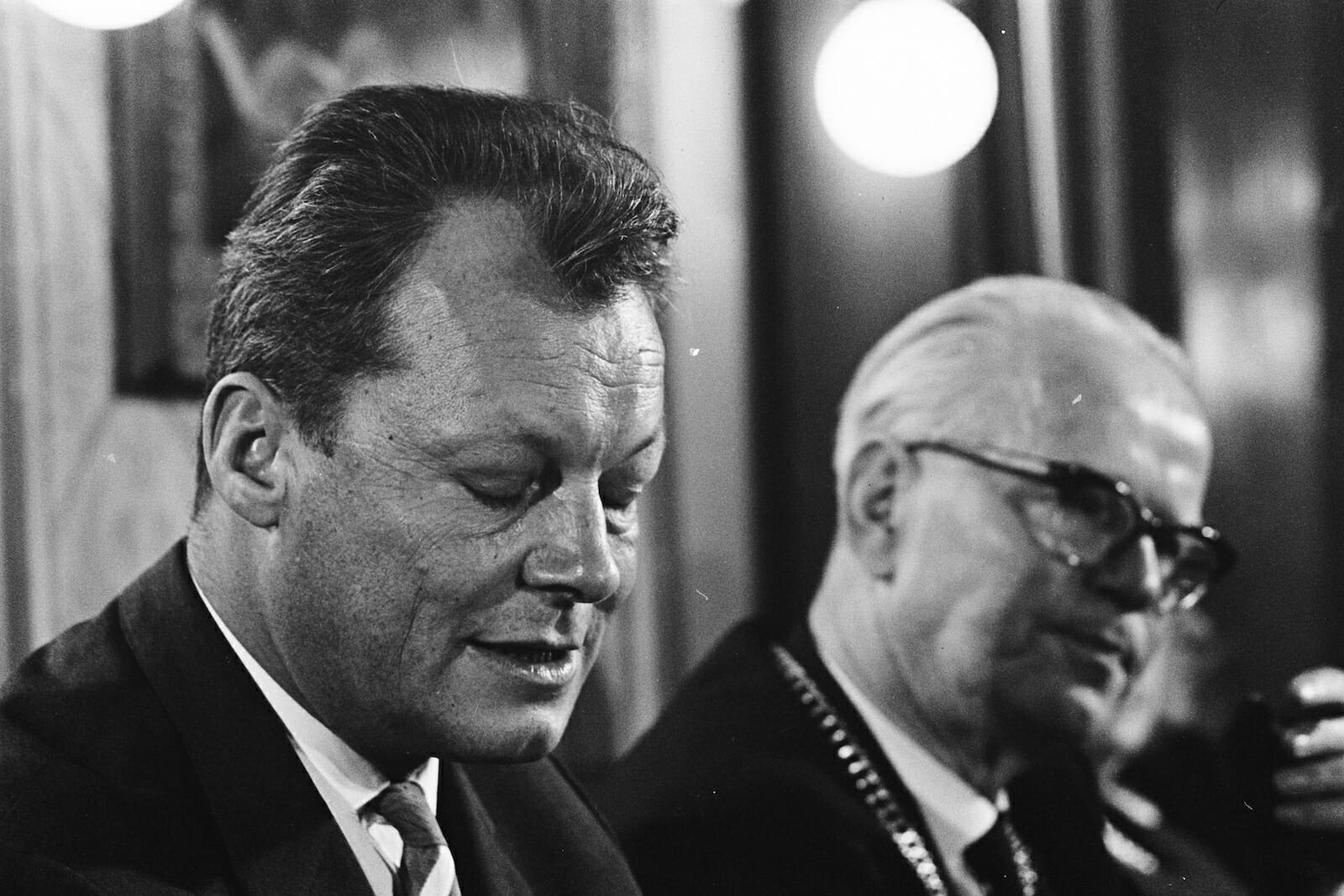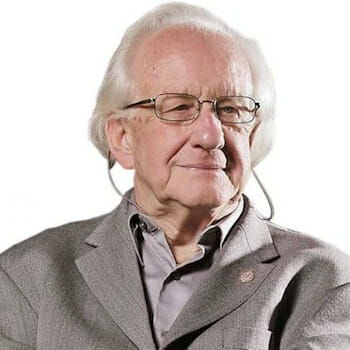
Willy Brandt Twenty Years After
The great German statesman Willy Brandt died twenty years ago. Germany, Europe, and the world have much to be grateful about, and much to learn from this master of politics under great tension and polarization. What was his Ostpolitik–new politics toward the East–formula?
De-escalation and tension reduction are important aspects, but too general. Brandt managed to present to the East, not only to DDR (East Germany) but to Poland, Czechoslovakia, and the Soviet Union, a friendly West Germany not filled with aggression and hatred; a member of NATO, but with a human face. There was no doubt about his stand on dictatorships against the will of the peoples, but he managed to relate directly to the East Germans, the Poles, the Czechs, and the Russians.
Frequent visitors to those countries could use Brandt as the proof that the West was not all that bad and menacing, pointing nuclear missiles at them. His predecessor, Kurt Georg Kiesinger, an old Nazi, conveyed such signals. In the end, it was Willy Brandt, not Helmut Kohl, who said the right words. Not “we have won” triumphalism, but “what belongs together now grows together.”
Brandt made it easier for East Germany when the time was ripe to capitulate to the West, to accept the West’s Article 23 that conceived of East as a part of West. He made the Deutsche Demokratische Republik reasonable by being reasonable himself. Brandt made Kohl 1989 possible.
And he made it easier for the East to admit, at least to themselves, their atrocities by admitting the same for Germany. The statesman went on his knees, the Kniefall, at the Warsaw ghetto memorial to the Jewish resistance in late 1970. No unnecessary words–they are small anyhow relative to the enormity of the genocide on Jews–but an act of submission to the German burden of guilt and deep solidarity with the victims. And a signal, one might add, to the Soviets whose troops had let it happen nearby not coming to their rescue.
Many were the Germans who had been driven out or had fled from the East, and their hatred of the perpetrators behind that ethnic cleansing was aimed at Brandt. He was accused of high treason. They mistook his friendliness to the peoples for a “yes” to the regimes. And fell into the trap of primitive thinking– “the friend of my enemy is my enemy.” It is so far from the ambiguity and subtlety of human affairs.
Brandt himself had lived a life of ambiguity. He was born Herbert Ernst Karl Frahm in Lübeck in 1913. He grew up under modest circumstances, later reflected in his enormous work to improve the German welfare state down to the smallest detail. He joined the Socialist Youth and the Socialist Workers Party, to the left of the Social Democratic Party of Germany (SPD), whose chairman he became later.
In 1933 he escaped Nazi persecution under the assumed name of Willy Brandt. Norway became his second country; a citizen from 1940 (his German citizenship had been revoked), and he had to escape again to Sweden from German-occupied Norway during the war. He spoke Norwegian and Swedish perfectly. We Norwegians were a little worried about that Swedish part, but he comforted us by saying once in Gothenburg that he dreamt in Norwegian. Carlota Frahm was my sister’s best friend, Willy’s name was a household name. Many are the Norwegians with similar stories to tell about “our Willy” always with love and respect.
I had the privilege of meeting him several times and we spoke Norwegian; his with an unmistakable Labor Party accent, mine rather bourgeois. When challenged by a conservative German paper that his program was not pure socialism, his answer was: “My years in Norway and Sweden have cured me of that.” Straight to the brain, not only to the heart of Scandinavians.
He was accused of being anti-German, repeatedly. Which Germany he was against when arrested in 1940, in Norwegian uniform, by the invading German forces that occupied Norway for 5 years was very clear. Only highly authoritarian fundamentalists with something to conceal can embrace, or reject totally, phenomena so complex as nations and states. Like the DDR leadership accusing all critics of their regime of being anti-socialist.
He spoke his mind, and often; and there was controversy around him, both hatred and loving, extensive followership. He was awarded the Nobel Peace Prize in 1971 for his peace-building handshakes with the East. In the tradition of that Western prize given to him only, not to, say, Brezhnev as it takes two to shake hands. But that prize often has the sound of one hand clapping.
His peace thinking went way beyond such narrow limits: “The globalization of risks and challenges––war, chaos, self-destruction––requires a kind of ‘world domestic policy’ that extends not just beyond the parish pump, but also far beyond national borders.”
No doubt inspired by another of the greatest Germans of the postwar period, Carl Friedrich von Weizsäcker. Those ideas were reflected in his Development and Peace Foundation. The Brandt Report about development was more traditional Western, top-down, but the general idea was a welfare world. That was the motto of the great Swede he no doubt knew very well–Gunnar Myrdal. “Peace is not everything, but without peace everything is nothing,” Brandt said. How true? Willy Brandt is a lasting monument to that idea.

